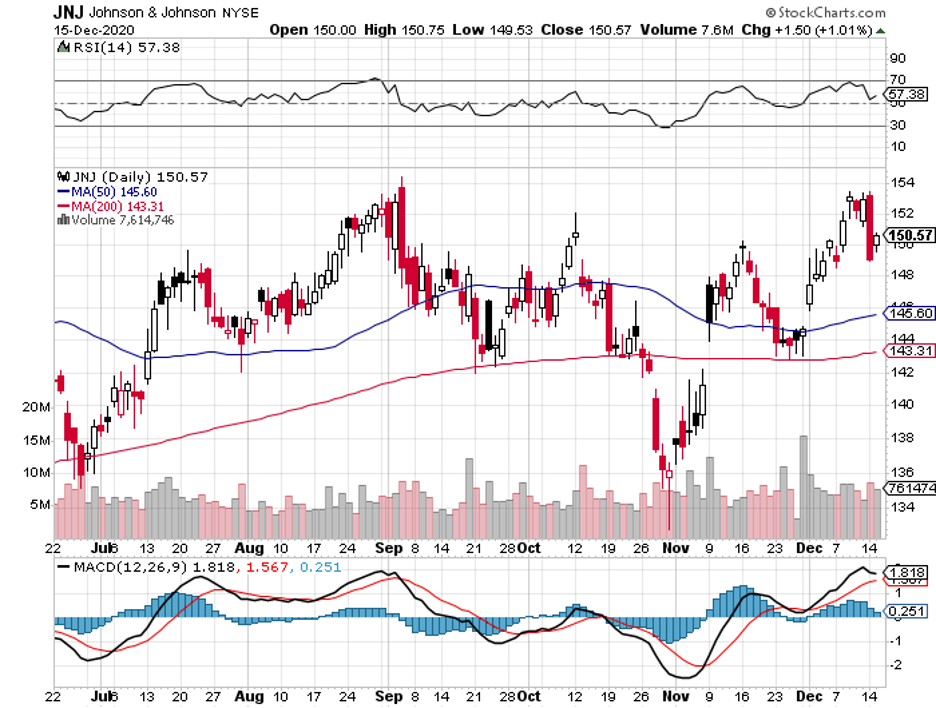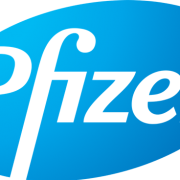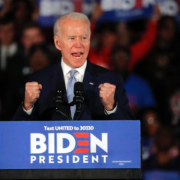All Hail the Dividend King
Major problems have the tendency to attract major problem solvers.
That’s why it came as no surprise when the biggest pharmaceutical companies, like Pfizer (PFE), GlaxoSmithKline (GSK), Sanofi (SNY), and Merck (MRK), jumped in to work a solution the moment a global pandemic threatened the planet.
Now, another big name in the healthcare industry is set to release its own solution.
As Johnson & Johnson (JNJ) releases more positive data from its COVID-19 vaccine program, it becomes more obvious that the company won’t simply be one of the businesses benefiting from the world turning the corner on the pandemic—it will be one of the companies making that happen.
While companies like Pfizer have already gained approval and are out in the market today, JNJ’s day in the sun could be happening sooner than anticipated as well.
What we know so far is that JNJ would be able to manufacture at least 1 billion doses of its COVID-19 vaccine, JNJ-78436735, by early 2021. Given the company’s massive production capacity, catching up with the global demand won’t be an issue either.
More importantly, JNJ’s vaccine offers more convenience in terms of storage compared to current leaders Pfizer and Moderna (MRNA) since JNJ-78436735 does not need ultra-special requirements.
Unlike the other vaccines, JNJ’s candidate can be stored at refrigerator temperature for up to three months.
Plus, JNJ-78436735 is formulated to be a one-dose vaccine, which means it would be easier to administer than the two-shot candidates from Pfizer and Moderna.
While this is great news, the company already announced that it would be selling JNJ-78436735 at cost during the pandemic.
That doesn’t necessarily mean that JNJ is doing all these for purely altruistic reasons though. Even when the pandemic is over, there will still be a demand for the COVID-19 vaccine.
The market for this is estimated to be worth roughly $100 billion in sales and over $40 billion in profits.
If approved, then JNJ can comfortably share this opportunity with competitors.
Given the pricing and the target market, JNJ is projected to earn at least $3 billion in sales for JNJ-78436735 in 2021 alone.
However, the appeal of JNJ stock does not lie in its COVID-19 vaccine candidate.
Pretty much like industry stalwarts such as Walmart (WMT), JNJ is one of the safest blue-chip stocks.
Founded in 1886, it has shown its capacity to weather practically all types of market crashes thanks to its consumer defensive strategy.
While JNJ is not immune to setbacks, as it faced patent expirations for its best-selling drugs and even lawsuits for products like Tylenol and the infamous Baby Powder legal battle, the company managed to repeatedly bounce back primarily because of its well-diversified business segments.
Simply put, its strong products easily offset the weaknesses.
JNJ manufactures and markets basic items like bandages, baby formula, and even skincare products—all of which are goods that customers continue to buy regardless of what is happening to the economy.
Specifically, JNJ owns a number of multibillion-dollar brands like Band-Aid, Listerine, and Nicorette. However, it doesn’t heavily rely on already established names.
For instance, its consumer health sector—the smallest segment in the company—raked in $13.9 billion in sales in 2019.
Meanwhile, its medical devices division generated $26 billion in the same year.
Its pharmaceuticals sector, which covers drugs and treatments for infectious diseases, oncology, and cardiovascular, brought in a whopping $42.2 billion.
A more recent demonstration of JNJ’s ability to weather market downturns is the company’s third-quarter earnings report, which showed a 3.8% jump in its EPS to hit $2.2 and a 1.7% increase in its sales to reach $21.1 billion.
By 2021, JNJ is projected to report a 9% increase in its revenue and a 12% earnings growth following the easing of the pandemic woes and the increasing sales of its top cancer treatments Darzalex and Imbruvica.
Over the past five years, JNJ’s stock has rallied by over 40% and generated a total return of 65%.
To date, this stock trades at merely 17 times forward earnings and pays a respectable forward yield at 2.7%, making it a good investment at a decent price.
As in the past, it’s easy to bet on JNJ’s dividend growth in the next years and even decades for three main reasons—an extremely diversified portfolio that already has an established solid footing across global markets, a rock-solid balance sheet, and a hyper-focus on development and growth.
JNJ’s solid foothold in the worldwide healthcare market along with its innovative R&D spending serves as key drivers for its impressive cash flow and consistent dividends.
Most investors are familiar with companies tagged as Dividend Aristocrats. These stocks are part of the S&P 500 group that managed to increase their dividends for at least 25 years in a row.
However, there’s an even more elite group of dividend stocks that do not get as much fanfare: the Dividend Kings.
To be categorized as a Dividend King, the company must be able to grow its dividend for at least 50 consecutive years.
Since it went public 76 years ago, JNJ has been able to boost its annual dividend for 58 straight years---making this company one of the globally recognized Dividend Kings of the S&P 500.




